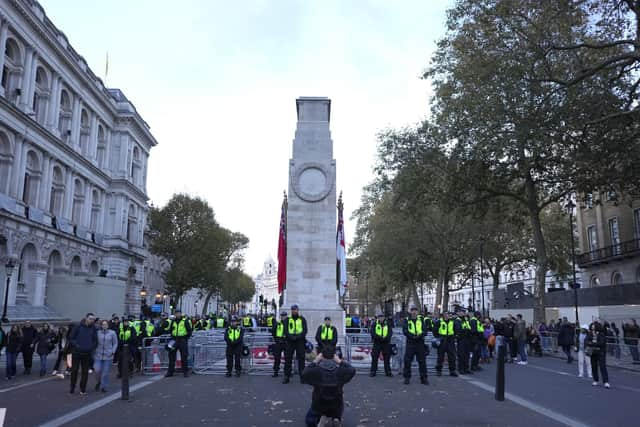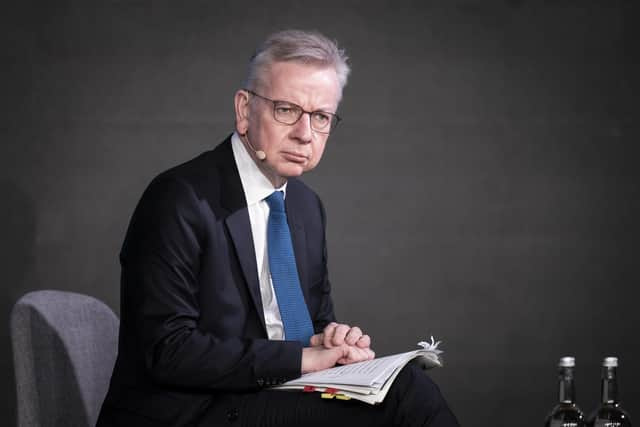Extremism: What is the definition unveiled by UK government? Which groups, like Muslim Association of Britain, are affected?
Michael Gove has unveiled the UK government’s new definition of extremism, citing concerns about threats to social cohesion and British democracy.
The plans are controversial, and have been condemned by both human rights groups and Tory MPs, amid concerns about free speech.
Advertisement
Hide AdAdvertisement
Hide AdBut what is the definition and which groups are affected by it?


What is the UK government’s definition of extremism?
Under the new definition, extremism is "the promotion or advancement of an ideology based on violence, hatred or intolerance", that aims to "negate or destroy the fundamental rights and freedoms of others, or “undermine, overturn or replace the UK's system of liberal parliamentary democracy and democratic rights”, or “intentionally create a permissive environment” for the first two to happen.
This is a change from the previous definition, which was described as "vocal or active opposition to fundamental British values, including democracy, the rule of law, individual liberty and mutual respect and tolerance of different faiths and belief".
The government claims British values are under threat, and therefore there needs to be a more "precise definition" that will "clearly articulate" how extremism is "evidenced" in behaviours, insisting it will not target those with private and peaceful beliefs.


What will the changes mean?
Under the changes, organisations or individuals added to the list will not be criminalised. Instead, they will be barred from contact with the government, and unable to receive government funding. In a move that has enraged Tory backbenchers, the groups will have no right to appeal, and instead have to submit new evidence for a review, or stump up for a judicial review.
Which groups will be affected?
The new definition is designed to include conduct that falls short of criminality, but is still deemed “unacceptable”. For example, being a member of a neo-Nazi group or Islamist organisation isn’t illegal. Under the changes, they could now be designated extremists.
Speaking in the Commons, Mr Gove named the Muslim Association of Britain, Cage and Mend (Muslim Engagement and Development), as well as the British National Socialist Movement and Patriotic Alternative as organisations now being assessed.
However, the impact on the pro-Palestine marches is less clear, with many attending the marches purely to demand a ceasefire. Charities such as Amnesty International are now warning they could be damned by association.
Comments
Want to join the conversation? Please or to comment on this article.
